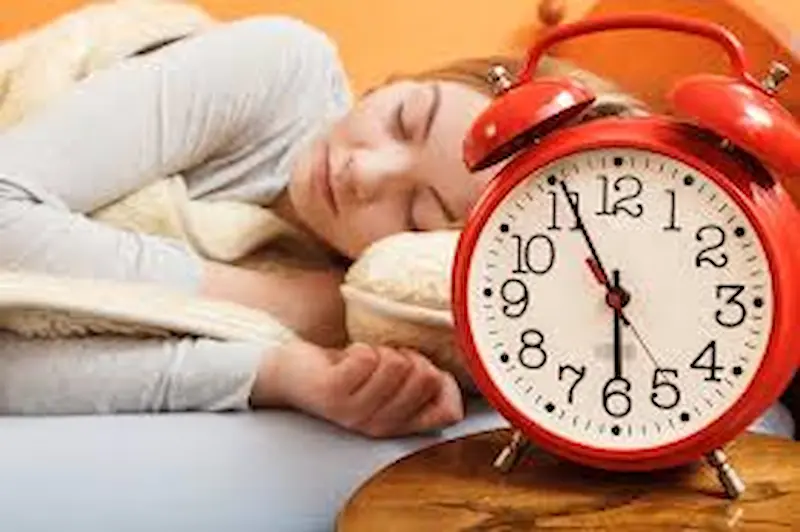We’ve all experienced those nights when no matter how tired we are, sleep just doesn’t come easily. You toss, you turn, and the next morning you wake up feeling groggy, unmotivated, and drained. The truth is, good sleep doesn’t happen by accident—it’s the result of healthy daily habits.
If you’re wondering what are the best habits for better sleep, you’re not alone. Millions of people struggle with poor sleep, but the good news is, making small lifestyle changes can transform how well you rest at night.
Here’s a complete guide to the top habits that improve sleep quality so you can wake up feeling refreshed and ready to take on the day.
1. Stick to a Consistent Sleep Schedule

Your body has a natural internal clock (circadian rhythm) that regulates when you feel awake and when you feel sleepy. Constantly changing your bedtime confuses this rhythm, making it harder to fall asleep.
✅ How to practice this habit:
- Go to bed and wake up at the same time every day—even on weekends.
- Aim for 7–9 hours of sleep.
- If you need to adjust your schedule, shift it gradually by 15–30 minutes instead of suddenly.
This routine teaches your body when it’s time to rest, making falling asleep easier and more natural.
2. Create a Relaxing Bedtime Routine
Think of your bedtime like a landing strip for sleep—you need to prepare for a smooth landing. A calming nighttime routine signals your brain that it’s time to wind down.
💡 Ideas for a bedtime ritual:
- Read a few pages of a book (paper, not a bright screen).
- Take a warm shower or bath—it relaxes muscles and lowers body temperature, which promotes sleep.
- Do light stretching or gentle yoga.
- Practice deep breathing, meditation, or progressive muscle relaxation.
- Listen to soft music, white noise, or calming sounds like rainfall.
Over time, these activities train your mind and body to associate them with sleep.
You may also like it:
How to Meal Prep for a Whole Week | Best Guide for Beginners
What is The Best Meal Plan for Weight Loss? Easy Guide
Top Wellness Trends Everyone Follows in 2025
Best Wellness Practices for Busy People | Simple Daily Tips
3. Limit Screen Time Before Bed
Scrolling on your phone or watching late-night shows may feel relaxing, but screens emit blue light, which delays melatonin production (your sleep hormone). The result? You stay alert when you should be winding down.
✅ Better choices:
- Avoid screens 1 hour before bedtime.
- Use “night mode” or blue-light filters if you must use devices.
- Try swapping phone time for reading, journaling, or listening to an audiobook.
4. Watch What You Eat and Drink in the Evening
Your evening choices can directly affect how well you sleep.
❌ Things to avoid close to bedtime:
- Caffeine: Coffee, tea, energy drinks, and even chocolate can keep you awake for hours.
- Heavy meals: A full stomach makes it harder to fall asleep comfortably.
- Alcohol: It may make you drowsy initially, but it disrupts deep, restorative sleep.
✅ Better alternatives:
- Herbal teas like chamomile, peppermint, or valerian root.
- A light evening snack (if hungry) such as bananas, yogurt, or nuts.
5. Optimize Your Sleep Environment
Your bedroom should feel like a sleep sanctuary. A noisy, bright, or cluttered room can make it harder to relax.
🛏️ Tips for a sleep-friendly bedroom:
- Keep your room cool (60–67°F or 15–19°C is ideal).
- Use blackout curtains to block unwanted light.
- Consider earplugs or a white noise machine if noise is an issue.
- Invest in a supportive mattress and pillows suited to your sleep style.
- Remove distractions like clutter, TVs, or work items.
6. Stay Active During the Day

Regular exercise helps you fall asleep faster and improves sleep quality by reducing stress and anxiety.
✅ Best practices:
- Aim for at least 30 minutes of moderate activity most days.
- Morning or afternoon workouts are ideal—late-night intense workouts may make you too energized to sleep.
- Even light activity, like walking or stretching, benefits your sleep cycle.
7. Manage Stress and Anxiety
One of the biggest culprits of poor sleep is an overactive mind. Stress and worry keep your brain buzzing when it should be shutting down.
💡 Ways to calm your mind before bed:
- Journal your thoughts to clear mental clutter.
- Write a “to-do list” for tomorrow so you don’t lie awake thinking about it.
- Practice gratitude journaling—write down 3 things you’re thankful for.
- Try mindfulness meditation or breathing techniques like 4-7-8 breathing.
8. Limit Naps (or Nap Smartly)
Napping during the day can be refreshing, but long or late naps interfere with nighttime sleep.
✅ Best nap rules:
- Keep naps under 20–30 minutes.
- Nap earlier in the day (before 3 PM).
- If you struggle with insomnia, skip naps altogether.
9. Get Natural Light During the Day
Sunlight exposure helps regulate your circadian rhythm, making it easier to fall asleep at night.
🌞 Simple ways to do this:
- Take a morning walk in natural sunlight.
- Keep curtains open during the day.
- If sunlight is limited, consider using a light therapy lamp.
10. Listen to Your Body
Sometimes, trying too hard to sleep makes it worse. If you can’t fall asleep within 20 minutes, don’t toss and turn endlessly.
✅ What to do instead:
- Get out of bed and do something relaxing in low light (reading, stretching).
- Return to bed when you feel drowsy.
- Over time, this trains your body to associate bed only with sleep, not frustration.
Final Thoughts
If you’ve been wondering what are the best habits for better sleep, the answer lies in small, consistent changes. Going to bed at the same time, limiting screens, eating light at night, managing stress, and creating a peaceful environment all work together to improve sleep quality.
You don’t have to adopt all these habits at once. Start with one or two—like keeping a regular schedule and avoiding screens before bed—and build from there. Over time, you’ll notice deeper sleep, more energy, and a calmer mind.
Good sleep isn’t a luxury—it’s a foundation for better health, productivity, and happiness.
FAQs
1. What are the top habits for better sleep?
The best habits include keeping a consistent sleep schedule, limiting screen time before bed, creating a relaxing bedtime routine, managing stress, and keeping your bedroom cool and dark.
2. How many hours of sleep should adults get?
Most adults need 7–9 hours of quality sleep each night for optimal health, energy, and focus.
3. Can exercise really improve sleep?
Yes! Regular physical activity helps you fall asleep faster and enjoy deeper sleep. Just avoid intense workouts right before bed.
4. Is it okay to nap during the day?
Short naps (20–30 minutes) can boost energy, but long or late naps may make it harder to sleep at night.
5. What foods or drinks help with sleep?
Chamomile tea, warm milk, bananas, almonds, and yogurt are great evening choices that support relaxation and better sleep.





